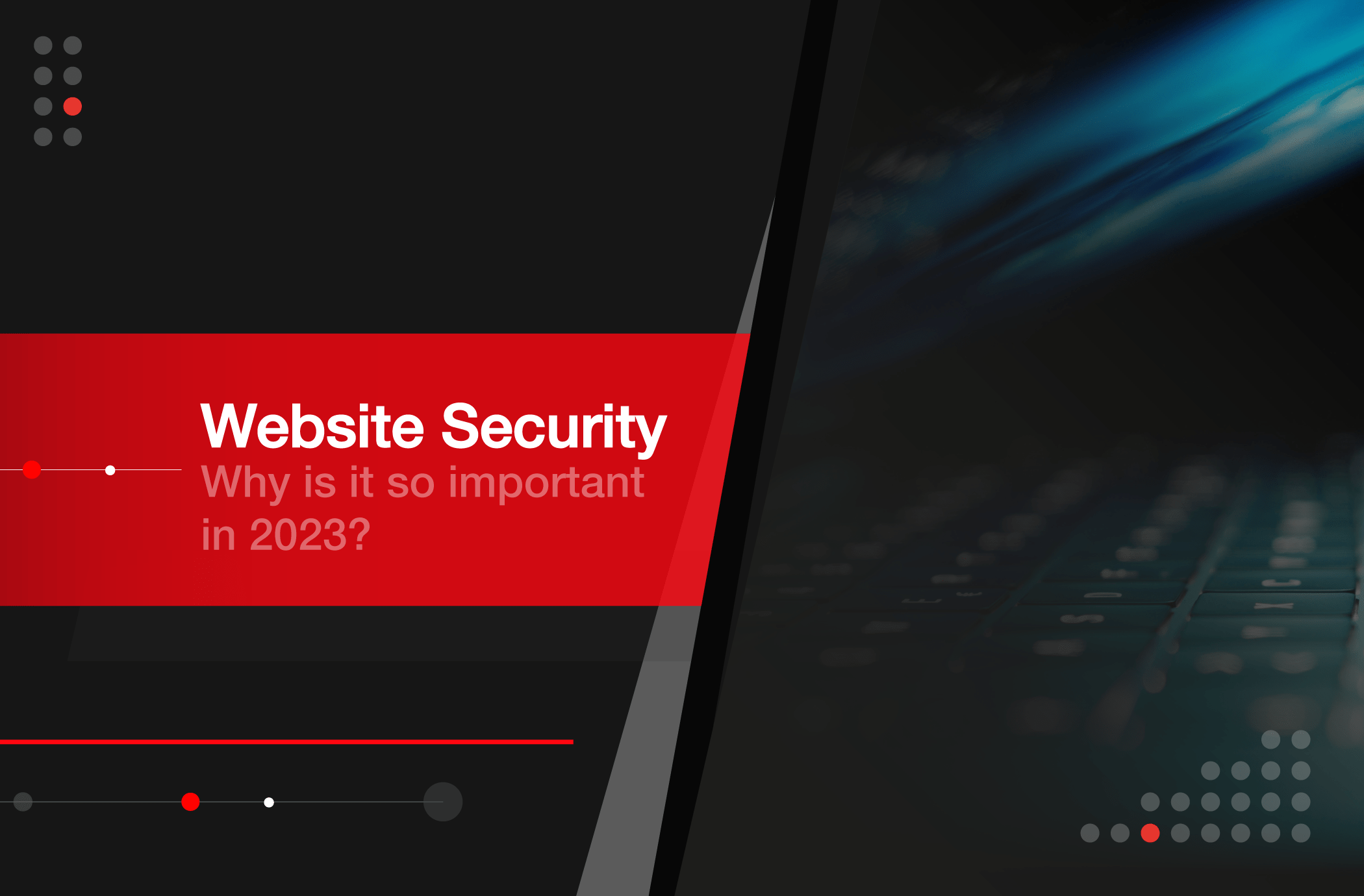
Why is Website Security SO Important in 2023?

The online world can be a scary place to navigate, and with more and more people using the internet every day, it’s so important to make sure you’re protected against any negative actions that could be taken against you via your website.
So, what is web security and most importantly, how can you protect yourself?
What Is Website Security?
To put it simply, website security relates to any action or measure put in place to prevent a site from being exposed to cybercriminals – like locking your front door, but online!
In such a technologically advanced world, there are unfortunately a huge number of attacks that hackers could take against a website, but here are the most common types…
Malware Attacks
First up is malware attacks. As described by Oxford Languages, malware is ‘software that is specifically designed to disrupt, damage, or gain unauthorized access to a computer system.’
There are a number of software types falling under this category, including trojan horses and worms (which may sound fun, but they’re not!). Perhaps the most common however, and one which we’ve probably all heard of, is a virus. A virus is a piece of code that duplicates itself in order to cause damage to a site, potentially having detrimental effects.
DoS Attacks
The second most common form of attack is a DoS attack, which floods a network with traffic or requests in order to cause a crash. While DoS attacks are less serious in the sense that they usually don’t compromise data, however they can take a great amount of time and resources to resolve.
Phishing
Next on the list is phishing, which you may remember from your internet security lessons in school. Have you ever had one of those suspicious emails telling you to click on a link, or a message from a company you’ve never been a customer of telling you you’ve won a giveaway? If so, then you’ve been a victim of phishing!
Unlike DoS attacks, phishing schemes are considered to be quite dangerous as they have the ability to install malware, steal data (including passwords and bank details), and use these to fraudulently take money and/or account information.

Why Do You Need to Keep Your Website Secure?
As well as being a huge pain to resolve, website attacks can have a devastating impact on a business.
Compromised data, whether it’s your business’ or customer data, could lead to serious lawsuits, as companies have a certain amount of responsibility when it comes to keeping information entered on their site safe. If this kind of information gets leaked into the public domain, it can be detrimental to a brand’s reputation, as well as costing a huge amount of money to fix if there’s solicitors involved.
With customers being more educated than ever on how their information is stored and used, if it gets out that your data has been compromised then the risk of losing business is huge, as potential customers may see this and decide not to trust you with their valuable information. A bad brand reputation is hard to shake once it’s out there (first impressions are everything!) so it’s better to take initial precautions to prevent this happening in the first place.

How Can You Keep Your Website Safe?
Don’t panic! We know we’ve told you a bunch of scary facts about data leaks and compromised passwords, but there are steps you can take to keep your site safe from hackers. Here’s a few steps to help your online safety:
Install an SSL Certificate
SSL certificates work by ensuring that any data transferred between systems, websites or users remains unreadable by using encryption algorithms to scramble data in transit, preventing the data from being accessible to hackers.
Use Anti-Malware Software
There are so many anti-virus programmes available online, both free and paid. Quite often, these pieces of software even include extra levels of security such as phishing detection, spam detection, website firewalls and even parental controls to ensure certain sites online can’t be reached.
Use Strong, Unique Passwords
It’s human nature to use passwords that you’re used to in order to allow us to remember them easily, but the trouble is, if they’re easy to remember – they’re probably easy to hack too. By using strong passwords such as those with upper and lower case letters, numbers and icons, you’re already increasing your protection against hackers. Just make sure you write them down!
Don’t Click Suspicious Links
It probably goes without saying, but if something doesn’t seem legit, don’t click it!
It’s better to be safe than sorry, and often any professional brand or business will never ask you for your bank details via a spam link in your email. If in doubt about whether a link, text or email is legit, call the business number to check.
Educate Employees on Website Security
Again, this may seem like an obvious thing to do, but education really is key when it comes to web security. By educating your staff on the dangerous effects that a data breach can have, you’re putting yourself in a position that’s far less likely to have this happen to you.
Want to find out how secure your website is? Get in touch and our dedicated web team will be happy to provide you with more information.


